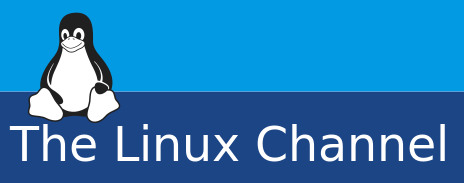VIDEOS 》 FreeBSD Networking Sub-system
Refer:
GitHub main FreeBSD src tree (read-only mirror) http://www.FreeBSD.org/ - https://github.com/freebsd/freebsd
struct mbuf (and struct pkthdr) - packet buffer - /sys/sys/mbuf.h - https://github.com/freebsd/freebsd/blob/master/sys/sys/mbuf.h

Refer:
FreeBSD:
GitHub main FreeBSD src tree (read-only mirror) http://www.FreeBSD.org/ - https://github.com/freebsd/freebsd
struct mbuf (and struct pkthdr) - packet buffer - /sys/sys/mbuf.h - https://github.com/freebsd/freebsd/blob/master/sys/sys/mbuf.h
struct mbuf - packet buffer APIs - /sys/kern/kern_mbuf.c - https://github.com/freebsd/freebsd/blob/master/sys/kern/kern_mbuf.c
struct mbuf - packet buffer APIs - /sys/kern/uipc_mbuf.c - https://github.com/freebsd/freebsd/blob/master/sys/kern/uipc_mbuf.c
struct mbuf - packet buffer APIs - /sys/kern/uipc_mbuf2.c - https://github.com/freebsd/freebsd/blob/master/sys/kern/uipc_mbuf2.c
FreeBSD IPv4 stack source - https://github.com/freebsd/freebsd/tree/master/sys/netinet
FreeBSD IPv6 stack source - https://github.com/freebsd/freebsd/tree/master/sys/netinet6
Structure defining a network interface - struct ifnet - https://github.com/freebsd/freebsd/blob/master/sys/net/if_var.h
--- vs ---
Linux Kernel Source:
Free Electrons online Kernel Source - http://elixir.free-electrons.com/linux/latest/source
struct sk_buff - packet buffer - /include/linux/skbuff.h - http://elixir.free-electrons.com/linux/latest/source/include/linux/skbuff.h
struct net_device - The DEVICE structure - /include/linux/netdevice.h - http://elixir.free-electrons.com/linux/latest/source/include/linux/netdevice.h
Linux Kernel IPv4-stack source - http://elixir.free-electrons.com/linux/latest/source/net/ipv4
Linux Kernel IPv6-stack source - http://elixir.free-electrons.com/linux/latest/source/net/ipv6
The source code of struct mbuf data-structure
(/sys/sys/mbuf.h) for quick reference:
/*
* The core of the mbuf object along with some shortcut defines for practical
* purposes.
*/
struct mbuf {
/*
* Header present at the beginning of every mbuf.
* Size ILP32: 24
* LP64: 32
* Compile-time assertions in uipc_mbuf.c test these values to ensure
* that they are correct.
*/
union { /* next buffer in chain */
struct mbuf *m_next;
SLIST_ENTRY(mbuf) m_slist;
STAILQ_ENTRY(mbuf) m_stailq;
};
union { /* next chain in queue/record */
struct mbuf *m_nextpkt;
SLIST_ENTRY(mbuf) m_slistpkt;
STAILQ_ENTRY(mbuf) m_stailqpkt;
};
caddr_t m_data; /* location of data */
int32_t m_len; /* amount of data in this mbuf */
uint32_t m_type:8, /* type of data in this mbuf */
m_flags:24; /* flags; see below */
#if !defined(__LP64__)
uint32_t m_pad; /* pad for 64bit alignment */
#endif
/*
* A set of optional headers (packet header, external storage header)
* and internal data storage. Historically, these arrays were sized
* to MHLEN (space left after a packet header) and MLEN (space left
* after only a regular mbuf header); they are now variable size in
* order to support future work on variable-size mbufs.
*/
union {
struct {
struct pkthdr m_pkthdr; /* M_PKTHDR set */
union {
struct m_ext m_ext; /* M_EXT set */
char m_pktdat[0];
};
};
char m_dat[0]; /* !M_PKTHDR, !M_EXT */
};
};
The source code of struct pkthdr data-structure
(/sys/sys/mbuf.h) for quick reference:
/*
* Record/packet header in first mbuf of chain; valid only if M_PKTHDR is set.
* Size ILP32: 48
* LP64: 56
* Compile-time assertions in uipc_mbuf.c test these values to ensure that
* they are correct.
*/
struct pkthdr {
union {
struct m_snd_tag *snd_tag; /* send tag, if any */
struct ifnet *rcvif; /* rcv interface */
};
SLIST_HEAD(packet_tags, m_tag) tags; /* list of packet tags */
int32_t len; /* total packet length */
/* Layer crossing persistent information. */
uint32_t flowid; /* packet's 4-tuple system */
uint32_t csum_flags; /* checksum and offload features */
uint16_t fibnum; /* this packet should use this fib */
uint8_t cosqos; /* class/quality of service */
uint8_t rsstype; /* hash type */
union {
uint64_t rcv_tstmp; /* timestamp in ns */
struct {
uint8_t l2hlen; /* layer 2 hdr len */
uint8_t l3hlen; /* layer 3 hdr len */
uint8_t l4hlen; /* layer 4 hdr len */
uint8_t l5hlen; /* layer 5 hdr len */
uint32_t spare;
};
};
union {
uint8_t eight[8];
uint16_t sixteen[4];
uint32_t thirtytwo[2];
uint64_t sixtyfour[1];
uintptr_t unintptr[1];
void *ptr;
} PH_per;
/* Layer specific non-persistent local storage for reassembly, etc. */
union {
uint8_t eight[8];
uint16_t sixteen[4];
uint32_t thirtytwo[2];
uint64_t sixtyfour[1];
uintptr_t unintptr[1];
void *ptr;
} PH_loc;
};
The source code of struct ifnet data-structure
(/sys/net/if_var.h) for quick reference:
/*
* Structure defining a network interface.
*/
struct ifnet {
/* General book keeping of interface lists. */
TAILQ_ENTRY(ifnet) if_link; /* all struct ifnets are chained */
LIST_ENTRY(ifnet) if_clones; /* interfaces of a cloner */
TAILQ_HEAD(, ifg_list) if_groups; /* linked list of groups per if */
/* protected by if_addr_lock */
u_char if_alloctype; /* if_type at time of allocation */
/* Driver and protocol specific information that remains stable. */
void *if_softc; /* pointer to driver state */
void *if_llsoftc; /* link layer softc */
void *if_l2com; /* pointer to protocol bits */
const char *if_dname; /* driver name */
int if_dunit; /* unit or IF_DUNIT_NONE */
u_short if_index; /* numeric abbreviation for this if */
short if_index_reserved; /* spare space to grow if_index */
char if_xname[IFNAMSIZ]; /* external name (name + unit) */
char *if_description; /* interface description */
/* Variable fields that are touched by the stack and drivers. */
int if_flags; /* up/down, broadcast, etc. */
int if_drv_flags; /* driver-managed status flags */
int if_capabilities; /* interface features & capabilities */
int if_capenable; /* enabled features & capabilities */
void *if_linkmib; /* link-type-specific MIB data */
size_t if_linkmiblen; /* length of above data */
u_int if_refcount; /* reference count */
/* These fields are shared with struct if_data. */
uint8_t if_type; /* ethernet, tokenring, etc */
uint8_t if_addrlen; /* media address length */
uint8_t if_hdrlen; /* media header length */
uint8_t if_link_state; /* current link state */
uint32_t if_mtu; /* maximum transmission unit */
uint32_t if_metric; /* routing metric (external only) */
uint64_t if_baudrate; /* linespeed */
uint64_t if_hwassist; /* HW offload capabilities, see IFCAP */
time_t if_epoch; /* uptime at attach or stat reset */
struct timeval if_lastchange; /* time of last administrative change */
struct ifaltq if_snd; /* output queue (includes altq) */
struct task if_linktask; /* task for link change events */
/* Addresses of different protocol families assigned to this if. */
struct rwlock if_addr_lock; /* lock to protect address lists */
/*
* if_addrhead is the list of all addresses associated to
* an interface.
* Some code in the kernel assumes that first element
* of the list has type AF_LINK, and contains sockaddr_dl
* addresses which store the link-level address and the name
* of the interface.
* However, access to the AF_LINK address through this
* field is deprecated. Use if_addr or ifaddr_byindex() instead.
*/
struct ifaddrhead if_addrhead; /* linked list of addresses per if */
struct ifmultihead if_multiaddrs; /* multicast addresses configured */
int if_amcount; /* number of all-multicast requests */
struct ifaddr *if_addr; /* pointer to link-level address */
void *if_hw_addr; /* hardware link-level address */
const u_int8_t *if_broadcastaddr; /* linklevel broadcast bytestring */
struct rwlock if_afdata_lock;
void *if_afdata[AF_MAX];
int if_afdata_initialized;
/* Additional features hung off the interface. */
u_int if_fib; /* interface FIB */
struct vnet *if_vnet; /* pointer to network stack instance */
struct vnet *if_home_vnet; /* where this ifnet originates from */
struct ifvlantrunk *if_vlantrunk; /* pointer to 802.1q data */
struct bpf_if *if_bpf; /* packet filter structure */
int if_pcount; /* number of promiscuous listeners */
void *if_bridge; /* bridge glue */
void *if_lagg; /* lagg glue */
void *if_pf_kif; /* pf glue */
struct carp_if *if_carp; /* carp interface structure */
struct label *if_label; /* interface MAC label */
struct netmap_adapter *if_netmap; /* netmap(4) softc */
/* Various procedures of the layer2 encapsulation and drivers. */
int (*if_output) /* output routine (enqueue) */
(struct ifnet *, struct mbuf *, const struct sockaddr *,
struct route *);
void (*if_input) /* input routine (from h/w driver) */
(struct ifnet *, struct mbuf *);
if_start_fn_t if_start; /* initiate output routine */
if_ioctl_fn_t if_ioctl; /* ioctl routine */
if_init_fn_t if_init; /* Init routine */
int (*if_resolvemulti) /* validate/resolve multicast */
(struct ifnet *, struct sockaddr **, struct sockaddr *);
if_qflush_fn_t if_qflush; /* flush any queue */
if_transmit_fn_t if_transmit; /* initiate output routine */
void (*if_reassign) /* reassign to vnet routine */
(struct ifnet *, struct vnet *, char *);
if_get_counter_t if_get_counter; /* get counter values */
int (*if_requestencap) /* make link header from request */
(struct ifnet *, struct if_encap_req *);
/* Statistics. */
counter_u64_t if_counters[IFCOUNTERS];
/* Stuff that's only temporary and doesn't belong here. */
/*
* Network adapter TSO limits:
* ===========================
*
* If the "if_hw_tsomax" field is zero the maximum segment
* length limit does not apply. If the "if_hw_tsomaxsegcount"
* or the "if_hw_tsomaxsegsize" field is zero the TSO segment
* count limit does not apply. If all three fields are zero,
* there is no TSO limit.
*
* NOTE: The TSO limits should reflect the values used in the
* BUSDMA tag a network adapter is using to load a mbuf chain
* for transmission. The TCP/IP network stack will subtract
* space for all linklevel and protocol level headers and
* ensure that the full mbuf chain passed to the network
* adapter fits within the given limits.
*/
u_int if_hw_tsomax; /* TSO maximum size in bytes */
u_int if_hw_tsomaxsegcount; /* TSO maximum segment count */
u_int if_hw_tsomaxsegsize; /* TSO maximum segment size in bytes */
/*
* Network adapter send tag support:
*/
if_snd_tag_alloc_t *if_snd_tag_alloc;
if_snd_tag_modify_t *if_snd_tag_modify;
if_snd_tag_query_t *if_snd_tag_query;
if_snd_tag_free_t *if_snd_tag_free;
/*
* Spare fields to be added before branching a stable branch, so
* that structure can be enhanced without changing the kernel
* binary interface.
*/
int if_ispare[4]; /* general use */
};
Suggested Topics:
Join The Linux Channel :: Facebook Group ↗
Visit The Linux Channel :: on Youtube ↗
💗 Help shape the future: Sponsor/Donate
Recommended Topics:
Featured Video:
Trending Video:
Saturday' 13-Mar-2021
Recommended Video:













